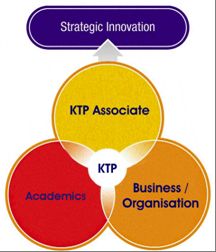In response to the 11 March 2011 earthquake and tsunami in the north east of Japan the Daiwa Anglo-Japanese Foundation, in partnership with the British Council in Japan, launched a £250,000 scholarship fund to support Japaneses students in the Tohoky region. They are now accepting applications for the 2012 round of scholarships.
The aim of this initiative is to support post-secondary level students affected by the March 2011 disasters, in particular those areas most affected (Miyagi, Fukushima and Iwate prefectures), seeking to study for a period at an educational institution in the United Kingdom. Applications will also be considered from students from the Tohoku region who are currently studying in the UK but who require financial support to continue their studies.
Scholarship applications may be submitted for the following types of courses, beginning in 2012 or 2013:
-
Undergraduate and postgraduate degree courses (including foundation programmes) in all subject areas
-
PhD and post-doctoral research programmes
-
Vocational courses at universities and colleges of further education
-
English language courses (e.g. pre-sessional courses, English language summer schools)
The amount of funding available will be determined on a case-by-case basis. Sufficient funding will be awarded to cover fees, living expenses and travel expenses for an applicant’s intended course, in line with its level and duration. Therefore, applicants are required to explain their vision for the future and financial plans as part of the application process. Priority will be given to students who can demonstrate seriousness of purpose and financial need. Successful applicants must secure a place on a course of study at a UK institution in order to take up funding.
Application forms can be downloaded from the British Council’s Japan website (www.britishcouncil.or.jp), and should include a personal statement outlining the purpose of study and long-term goals. Completed application forms should be sent to: Daiwa Foundation Tohoku Scholarships section, British Council, 1-2 Kagurazaka, Shinjuku-ku, Tokyo 162-0825
The application deadline is 15 June 2012 (applications postmarked up to this date will be accepted). Applicants who intend to study in the UK on courses of up to three months will be assessed on the basis of the application form alone; applicants who intend to study on courses of over three months will be asked to come to either London or Tokyo for an interview. The selection panel will assess applications and inform applicants who are selected for interview by early July. Interviews will take place on 10 and 11 July 2012 in London, and on 18 and 19 July 2012 in Tokyo. All successful applicants (for courses of both up to and over three months) will be informed of the results in mid-August.
For further information visit the call website: http://www.dajf.org.uk/ and read the scheme notes: http://www.educationuk.org/userfiles/file/Daiwa%20Foundation%20Tohoku%20Scholarships%20publicity.pdf
The closing date is 15 June 2012.



 The next round of the internal small grants scheme closes this month on 31st May. The scheme provides up to £2000 per application for direct costs.
The next round of the internal small grants scheme closes this month on 31st May. The scheme provides up to £2000 per application for direct costs.



















 April’s Café Scientifique – Should we help machines understand and respond to our emotions?
April’s Café Scientifique – Should we help machines understand and respond to our emotions? Postgraduate Research Experience Survey (PRES) 2024 – 2 WEEKS LEFT
Postgraduate Research Experience Survey (PRES) 2024 – 2 WEEKS LEFT Working with The Conversation: online training session – Wednesday 8th May
Working with The Conversation: online training session – Wednesday 8th May Apply for up to £1,000 to deliver an event and take part in a national festival of public engagement with research
Apply for up to £1,000 to deliver an event and take part in a national festival of public engagement with research MSCA Postdoctoral Fellowships 2024
MSCA Postdoctoral Fellowships 2024 Horizon Europe News – December 2023
Horizon Europe News – December 2023